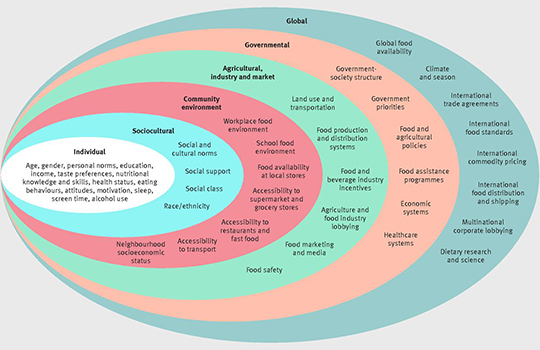
Living a healthy life requires that you have a positive outlook about aging. You can start by finding a positive perspective and keeping your focus on the things you are good at. Take advantage of all the opportunities to connect with family and friends. If you have any concerns about your overall health, you can always seek professional help.
Rest is an important factor in aging healthy. It is important to get at least 7-8 hours of sleep each night. Your body needs time to heal. You can experience premature aging by not getting enough sleep. It can also decrease the level of telomeres which are protective molecules that protect cells. Higher levels of cancer and death are associated with shorter telomeres.
Engaging with challenging activities is one the best ways you can care for your brain. Mental activities that challenge your thinking have been shown to improve brain function and brain health. Activities such as learning a new language or taking up dance lessons can help your mind stay sharp. Volunteering or joining a club are also options.

An important part in a healthy aging plan is regular exercise. Exercise keeps your bones and muscles strong and can improve your balance and flexibility. It can prevent you from falling. You can also improve your mood by engaging in physical activity. It can lift your mood and improve your energy.
Your blood vessels get smaller and your heart must work harder to pump blood as you age. Physical activities can help improve your circulation and reduce your risk of heart disease, stroke, and some cancers. You can increase your exercise levels to improve your endurance and strengthen your muscles.
Make sure you keep up with your annual doctor visits. Annual health screenings and checksups should be included. These screenings can help you detect common aging issues. You should also discuss your calorie intake with your doctor. You can also limit the intake of harmful additives like sodium, sugar, refined carbohydrates. Avoiding smoking can help lower your risk for heart disease and stroke.
Finally, healthy eating habits are crucial to living a long and happy life. You need to eat plenty of fruits and vegetables, low-fat meats, and other nutrient-dense foods. Water is also important. These foods contain antioxidants, which can reduce your chance of developing heart disease. White bread, white pasta and other high-sugar foods should be avoided. These can increase blood sugar. Limiting alcohol intake is also important to avoid oxidative stress.

Your brain should be active as you age. Your mind will stay active and stimulated by learning new things. You can also improve your well-being and health by engaging in challenging activities. A great way to sharpen your brain is to learn a new skill such as juggling, or playing a musical instrument.
FAQ
Which are the top 10 foods you should eat?
These are the 10 best foods you can eat:
-
Avocados
-
Berries
-
Broccoli
-
Cauliflower
-
Eggs
-
Fish
-
Grains
-
Nuts
-
Oats
-
Salmon
What is the healthiest lifestyle to life?
Living a healthy lifestyle is one that encourages you to eat well, exercise regularly, get enough sleep, and avoids stress. These guidelines will help you live a long, healthy life.
Start small by changing your diet and exercising routine. If you're looking to lose weight, walk for 30 minutes each morning. Swimming or dancing are great options if your goal is to become more active. An online fitness program, such as Strava and Fitbit, can help you track your activity.
How much should I weigh for my height and age? BMI calculator and chart
Use a BMI calculator to determine how much weight is needed to lose. The healthy BMI range for a healthy person is 18.5 to 24.9. If you want to lose weight, then you should aim to drop about 10 pounds per month. Simply enter your height, weight and desired BMI into the BMI calculator to calculate it.
Check out this BMI chart to determine if you are overweight or obese.
How do I get enough vitamins?
The majority of your daily nutritional needs can be met solely through diet. Supplements can be beneficial if you are missing a specific vitamin. You can purchase a multivitamin that includes all the vitamins needed. You can also get individual vitamins at your local drugstore.
Talk to your doctor to find out which foods are rich in vitamins. Some examples of rich sources of vitamins E and K include dark green leafy vegetables, such as spinach.
Ask your doctor for advice if you are unsure how much vitamin to take. He or she will recommend the appropriate dosage based on your medical history and current health status.
Why should we live a healthy existence?
Healthy living can lead to a longer and happier life. Good nutrition, exercise regularly, good sleep habits, and stress control can help you avoid diseases such as heart disease and stroke.
A healthy lifestyle will improve our mental well-being and help us deal better with everyday stresses. Having a healthy lifestyle will also boost our self confidence and help us look and feel younger.
Statistics
- This article received 11 testimonials and 86% of readers who voted found it helpful, earning it our reader-approved status. (wikihow.com)
- Extra virgin olive oil may benefit heart health, as people who consume it have a lower risk for dying from heart attacks and strokes according to some evidence (57Trusted Source (healthline.com)
- According to the Physical Activity Guidelines for Americans, we should strive for at least 150 minutes of moderate intensity activity each week (54Trusted Source Smoking, harmful use of drugs, and alcohol abuse can all seriously negatively affect your health. (healthline.com)
- The Dietary Guidelines for Americans recommend keeping added sugar intake below 10% of your daily calorie intake, while the World Health Organization recommends slashing added sugars to 5% or less of your daily calories for optimal health (59Trusted (healthline.com)
External Links
How To
What does the meaning of "vitamin?"
Vitamins are organic compounds found naturally in food. Vitamins aid us in absorbing nutrients from the food we eat. Vitamins cannot be produced by the body. They must be obtained from food.
There are two types vitamins: water soluble or fat soluble. Water-soluble vitamins dissolve readily in water. You can find vitamin C,B1 or thiamine, B2 or riboflavin and B3 or niacin. B6 is pyridoxine. Folic acid, biotin and pantothenic are some examples. Fat-soluble vitamins are stored within the liver and in fatty tissue. Examples include vitamin D, E, K, A, and beta carotene.
Vitamins are classified based on their biological activity. There are eight major vitamin groups:
-
A - vital for normal growth and maintaining good health.
-
C is important for nerve function and energy production.
-
D - essential for healthy teeth and bones.
-
E - needed for good vision and reproduction.
-
K - Required for healthy nerves and muscles.
-
P - Vital for strong bones and teeth.
-
Q - Aids in digestion and absorption.
-
R – Required for making red blood vessels.
The recommended daily allowance for vitamins (RDA) varies according to age, gender, or physical condition. The U.S. Food and Drug Administration (FDA) sets the RDA values.
For adults aged 19 or older, the RDA of vitamin A is 400mg per day. For fetal development, pregnant women require 600 micrograms per daily. Children ages 1-8 require 900 micrograms per day. For infants younger than one year, 700 micrograms are required daily. However, this number drops to 500 micrograms each day for children aged 9-12 months.
Children aged 1-18 years need 800 micrograms daily, while children overweight require 1000 micrograms per days. Children who are severely obese or underweight will need 1200 micrograms each day.
Children 4-8 years old with anemia will need 2200 mg of vitamin D daily.
2000 micrograms per person is necessary for general health. Because of their higher nutrient needs, women who are pregnant or nursing need 3000 mg per day.
1500 micrograms are required daily by adults over 70 because they lose approximately 10% of their muscle each decade.
Women who are pregnant or lactating need more than the RDA. Pregnant women need 4000 micrograms per dayduring pregnancy and 2500 micrograms per day after delivery. Breastfeeding mothers need 5000 mg per day when breastmilk is being produced.